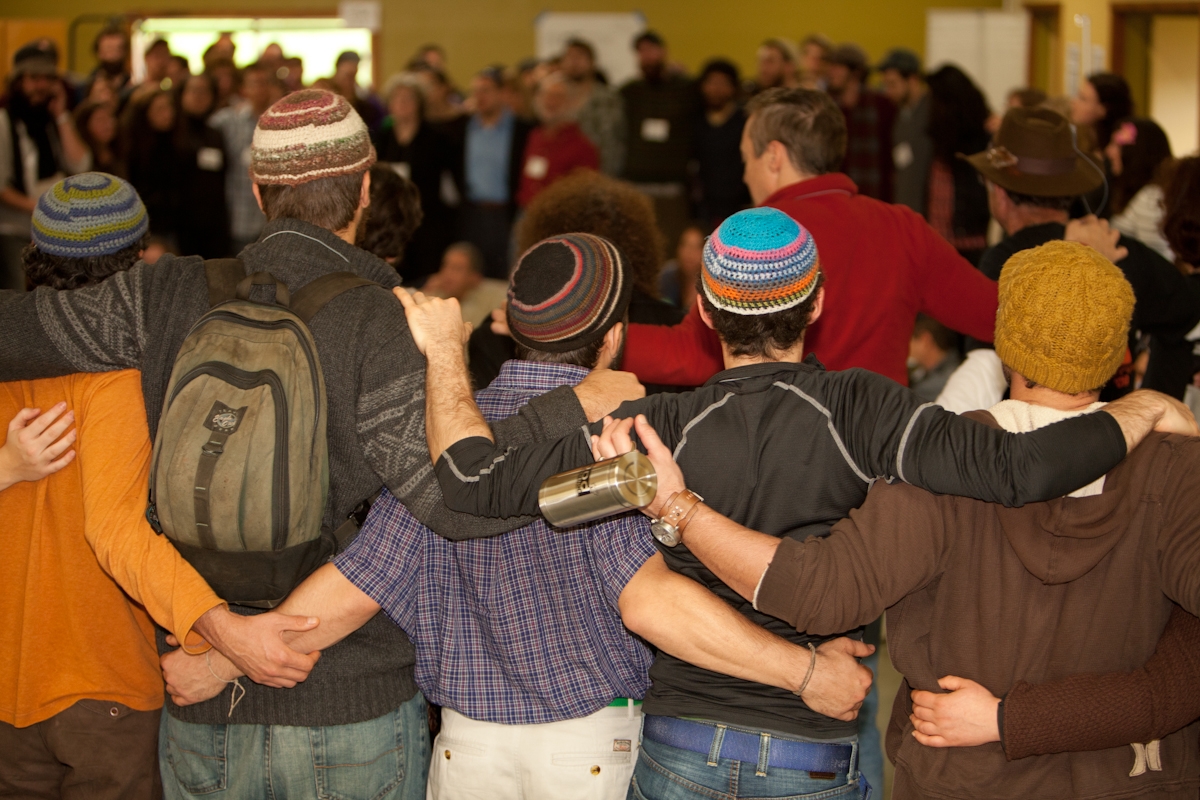AKRON, Ohio (JTA) — Five years ago, when I began to work for Lippman Kanfer Family Foundation, I met with a colleague who worked with early-stage nonprofit organizations that are creating new ways of involving people in Jewish community life.
How wonderful, I gushed, that there are all these people who felt outside of Jewish life and who are now trying out new approaches to Jewish engagement. “Dara,” my colleague stopped me to say, “these entrepreneurs aren’t outsiders. They are day school graduates and rabbis’ kids, and many are rabbis themselves.”
It was a surprising moment for me. Having spent several years disengaged from organized Jewish life myself, and seeing all sorts of opportunities to learn, engage and contribute that were often targeting the “unaffiliated,” I assumed that their creators were also communal outsiders. Stepping back, though, it’s not surprising that Jewish social entrepreneurs are connected to their religious communities. After all, why would someone innovate to enhance something they don’t strongly value?
So too, it turns out, are financial supporters of innovation — and the lesson applies to all kinds of religious communities, not just Jewish ones. Jumpstart’s new study, “Connected to Give: Risk and Relevance,” co-funded by the Lippman Kanfer Foundation, finds that “[t]he donors most willing to support an unproven organization generally are those who are most engaged in their religious communities. Highly connected donors generally are willing to contribute to new organizations that offer a different approach to addressing a persistent problem that has been difficult to solve.”
What sets religiously affiliated donors apart from others less willing to fund such innovation? Maybe because they are involved in Jewish life they know what they find most valuable in Judaism and want to find ways to share it with others. They experience gaps themselves, see where the gaps exist for their families and friends, and therefore provide support for promising responses. Affiliated donors are, perhaps, more willing to take risks because they can imagine, and sometimes experience firsthand, the reward.
For such donors, today’s group of innovative Jewish ventures can indeed provide myriad ways to enact and extend their Jewish values and sensibilities. Whether it’s practicing values of welcoming and applying the principle that all are created in the divine image (b’tzelem Elohim) by creating a more inclusive community with InterfaithFamily and Keshet (which works with and for LGBT Jews), or expanding opportunities for learning for its own sake (Torah Lishma) with innovative educational experiences such as Kevah (which creates lay-led religious learning circles) or project-based learning in Jewish day schools, or implementing the principle of reducing waste (bal tashchit) by supporting environmental activism and farming with Hazon (which advances healthy and sustainable communities) and the Jewish Farm School.
Supporting innovation itself embodies learning from practice: we do and then we understand (na’aseh v’nishma). When we experiment, success often doesn’t look exactly like what we anticipated. For both the donors and the organizations, experimenting is about exploring and learning together what is relevant for people, what makes their lives more meaningful, what helps to repair the world.
With religious affiliation as the engine that drives support for new ideas and approaches, we who work with innovators should be turning more often and more directly to those most deeply involved with Jewish organizations and causes. We should listen to how they talk about the gaps, opportunities and possibilities that call for important and promising innovations. Continuing to enlist more active partners in funding innovative endeavors will open new pathways for the connected and not-yet-connected alike, and will enrich Jewish life for all.
Dara Weinerman Steinberg is executive director of Lippman Kanfer Family Foundation and Lippman Kanfer Foundation for Living Torah.
JTA has documented Jewish history in real-time for over a century. Keep our journalism strong by joining us in supporting independent, award-winning reporting.






